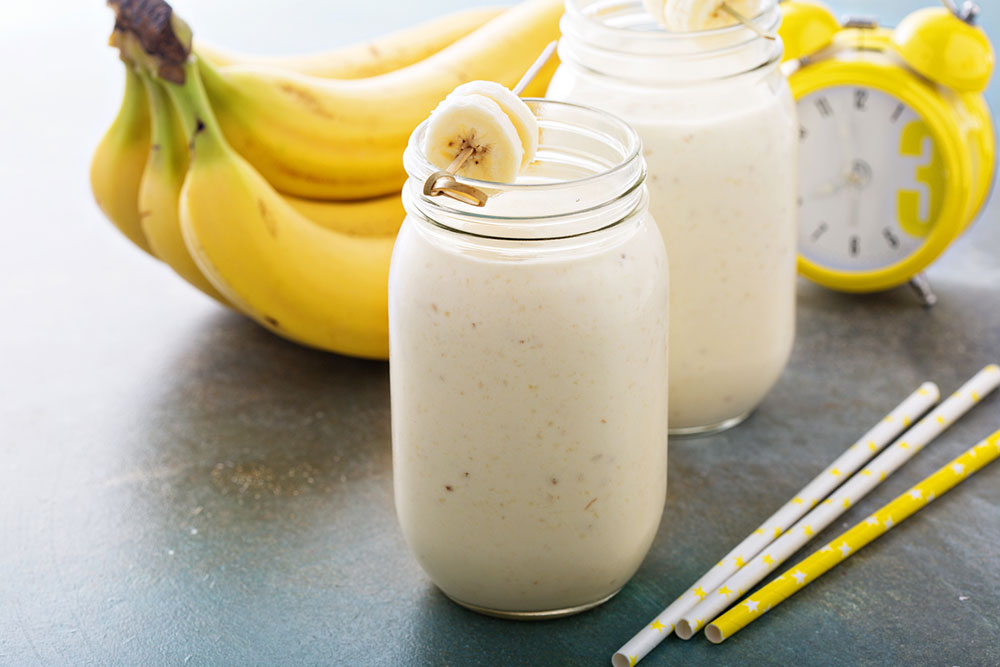
Ulcerative colitis – Foods to eat and avoid
Ulcerative colitis, a type of inflammatory bowel disease, can be challenging to control with food choices alone. Creating a personalized meal plan can help one navigate this condition and improve their overall well-being. This article discusses the best ulcerative colitis foods to include in one’s meal plan and the ones to avoid. This will help one get an idea of how to create a meal plan that supports their gut and colon health and keeps symptoms at bay.
Symptoms of ulcerative colitis
Ulcerative colitis can cause a range of symptoms. It can vary in severity and may come and go over time. It’s important to recognize the signs of ulcerative colitis in order to manage the condition effectively. Here are some common symptoms to watch out for:
- Fatigue
Feeling constantly tired or lacking energy is a common symptom of ulcerative colitis. This can be caused by the inflammation in the body and the body’s efforts to fight it off. - Loss of appetite
Ulcerative colitis can contribute to a loss of food cravings and a lack of interest in food. This can result in unintentional weight loss and nutrient deficiencies if not properly managed. - Urgency of bowel movement
Many individuals with ulcerative colitis experience a sudden and urgent need to have a bowel movement. This can be accompanied by cramping and discomfort. - Blood in the stool
The inflammation in the colon can cause ulcers to form, leading to blood in the stool. - Loose stools
Ulcerative colitis can cause diarrhea, resulting in loose or watery stools. This can lead to dehydration if not addressed properly. - Abdominal pain
Cramping and abdominal pain are common symptoms of ulcerative colitis. The pain can range from subtle to unbearable and may be accompanied by bloating. - Malnutrition
The inflammation and digestive issues associated with ulcerative colitis can interfere with nutrient absorption, leading to malnutrition. It’s important to focus on a nutrient-rich food regimen to prevent deficiencies.
Foods to incorporate into one’s ulcerative colitis meal plan
Incorporating the right foods into one’s food regimen can greatly improve symptoms and overall well-being. Here are some essential foods one should consider including in their meal plan:
- Low-fiber fruits like bananas
Fruits such as bananas, cantaloupe, and honeydew melon are gentle on the digestive system and can provide essential nutrients without irritating them. - Stewed pears or cooked fruits
Cooking fruits can make them easier to digest while still retaining their nutritional value. Try baking bananas, apples, or stewing pears for a delicious and soothing treat. - Tofu
This plant-based protein source is easy to metabolize and can nourish one with the essential amino acids the body needs. It’s a versatile ingredient that can be added to stir-fries, salads, or soups. - Avocados
This creamy and nutrient-dense fruit is gentle on the digestive system and provides healthy fats that can help reduce inflammation. - Refined foods like white bread
While focusing on whole grains is important, individuals with ulcerative colitis may benefit from including refined foods in their meal plans. These include white bread, refined breakfast cereals, white rice, and low-fiber pasta and noodles. - Steamed carrots or mashed potatoes
Cooking vegetables like carrots and potatoes can help break down their tough fibers and make them more digestible. Remove the peel, seeds, and stalks to minimize irritation.
Foods to avoid for ulcerative colitis management
While incorporating the right foods into one’s meal plan can help improve symptoms, it’s equally important to be aware of the foods that can trigger flare-ups and worsen one’s condition. Avoiding these problematic foods can reduce inflammation, minimize discomfort, and maintain better control over the condition. Here are some foods that those with ulcerative colitis should avoid:
- Raw vegetables
Raw vegetables can be difficult to digest and may exacerbate symptoms. Opt for cooked or steamed vegetables instead. - Dairy products
Many individuals with ulcerative colitis are also lactose-intolerant. Dairy products can lead to bloating, gas, and diarrhea. Consider alternatives like lactose-free or plant-based milk. - Foods high in fiber
While fiber is typically beneficial for digestion, high-fiber foods can be challenging for individuals with ulcerative colitis. Limit or avoid whole grains, bran, nuts, and seeds. - High-fat meats
Fatty cuts of meat can be harder to digest and may trigger inflammation. Choose lean meat cuts or alternative protein sources like fish or tofu. - Caffeine
It can stimulate the digestive system and increase bowel movements, potentially aggravating symptoms. Limit or avoid coffee, tea, and energy drinks. - Refined sugar
It can lead to inflammation and worsen gastrointestinal symptoms. One should reduce their intake of sugary snacks, desserts, and beverages. - Hot sauces and spicy foods
Spicy foods can irritate the digestive system and cause discomfort. Steer clear of hot sauces, peppers, and heavily seasoned dishes. - Carbonated beverages
Carbonated drinks can lead to gas and bloating. Try drinking still water or herbal tea instead. - Dried beans, peas, fruits, or berries
These foods can be extremely difficult to process and digest and may cause gas and bloating. Choose fresh alternatives instead.




